Donald Trump deserves the Nobel Peace Prize. Here is why.
September’s Israel-UAE and Bahrain peace deals are truly momentous—a triumph of President Trump’s Middle East diplomacy. For the first time in the 72-year history of the state of Israel, Gulf Arab countries have established full diplomatic relations with the Jewish state. This is not just symbolic—it represents an enduring structural power shift that will bring greater stability and the potential for broader peace in the volatile region.
In six short weeks, the Abraham Accords have already born fruit. The October 23rd Sudan-Israel peace deal, Saudi leaders’ recent defense of the deals, the UAE and Israeli foreign ministers‘ historic early October joint visit to Berlin’s main Holocaust memorial, and the recent announcement of a $3 billion joint U.S.-UAE-Israel investment fund all underscore the profound change now underway.
International agreements endure only when nations’ fundamental concerns are served. Such is the case with the September 2020 deals. Like Egypt in 1978 and Jordan in 1994, Gulf Arab states—driven by changing regional power dynamics and economic conditions—are placing the benefits of an open relationship with Israel ahead of the Israel-Palestinian conflict, with all the domestic risks, above-all terrorism, that that entails.
But these calculations on fundamentals weren’t enough. Success required Trump’s disruptive diplomacy to break the log-jam of old resentments and antiquated stances. President Trump and his team saw an opportunity and seized it, facilitating, cajoling, enabling these countries to break with the half-century-old status quo.
Many Middle East experts predicted the exact opposite outcome from Trump’s disruptive foreign policy. These critics clamored that moving our embassy to Jerusalem, recognizing Israel’s sovereignty over the Golan Heights, and withdrawing from the Iran nuclear deal were calamitous blows to future Arab-Israeli reconciliation.
Recommended
Bill Clinton’s last ambassador to Israel, Martin Indyk, summed up their argument well when he wrote late last year that Trump’s policies “cannot possibly create a new, more stable regional order,” but “will certainly do a good job of continuing the destruction of the old one, and risking all that it had gained.” He concluded that if Trump’s approach continued, the United States “should not be surprised to find itself alone in the desert, chasing a mirage.”
Some desert! Some mirage! The diplomatic reality now unfolding before us dramatically refutes these critics. Trump's decisive break with nine past presidents on Israeli territorial claims, and with Barack Obama on Iran, made September’s achievement possible.
Past administrations’ strict adherence to purely symbolic redlines like Jerusalem and the Golan Heights ensured that Arab states in the region could hide behind endlessly failing Israel-Palestinian peace negotiations to avoid tough choices, holding tightly to ossified postures that by the 2000s obstructed peace.
Much has been written about how Israel and the Sunni Arab states’ shared fear of Iran’s growing regional power brought them ever closer. Thus did President Obama stumble ineptly into inadvertently creating a precondition for September’s historic peace deals.
The Iran nuclear deal (speaking of desert mirages!), combined with Obama’s sustained support for the ultimately destructive Arab Spring, forced the Sunni Arab states in the Obama years into a defensive crouch—not a good position from which to mount a courageous charge toward peace.
Obama’s turn to Iran was a radical break with 75 years of close U.S.-Arab Gulf state security cooperation, dating back to FDR's famous 1945 post-Yalta Conference shipboard meeting with Saudi King ibn Saud. With Obama in the White House, for the first time ever, Gulf Arab leaders faced a U.S. administration hostile to their legitimate security concern over an ever-more dangerous Iran. In desperation they scrambled for support—even flirting with pro-Iran Moscow—and reexamined the shibboleths that for 75 years defined Arab policy toward the now most powerful country in the region—Israel.
When Donald Trump was elected in 2016, most Arab leaders hoped this spelled the end to Obama’s rapprochement with Iran, a policy that brought billions of dollars into the mullahs’ coffers, inspired massive Iranian military involvement in Iraq, Syria and Yemen, and a surge of Iranian aggression against Sunni Arab countries. They understood the Iran nuclear deal was only a temporary palliative that did nothing to stop Iran from obtaining the nuclear weapons it covets five short years from now when key provisions of the Iran deal expire. And Trump’s words and actions healing Obama-era rifts with the Gulf states and Israel reassured our traditional partners that U.S. policy was back on track—the United States could once again be trusted to back up rhetoric with reality in brokering the compromises that enable peace.
Middle East countries play the long game in their dealings with the United States. They know that U.S. presidents come and go. Overly close association with one president could damage relations with the United States when a president of the other party takes office. This self-imposed restraint holds doubly true in a presidential election year.
Why then, seven short weeks before a U.S. presidential election—with the incumbent president’s opponent leading in the polls—did Gulf Arab states so publicly embrace a U.S.-orchestrated peace with Israel, replete with a grand White House ceremony where their foreign ministers heaped effusive personal praise on President Trump?
The answer, in a word, is Biden.
Sunni Arab governments were at first relieved when the former vice president defeated his more radical opponents to win the Democratic presidential nomination. They assumed that Obama’s Middle East policy would remain an anomaly, that Biden’s 36 years in the U.S. Senate—going back to before the 1978 Camp David Accords between Israel and another Sunni Arab state, Egypt—ensured that he would not revert to Obama’s radical pro-Iran, anti-Gulf Arab stance.
Their hopes were dashed. Joe Biden has made clear that as president he would rejoin the Iran nuclear deal and terminate the economic sanctions the Trump administration imposed on Iran as part of its “maximum pressure” campaign—a policy that depleted the mullah’s coffers, slashed Iranian material support for terrorist groups like Hezbollah, and curtailed the regime’s use of subsidized oil exports and its covert terrorist presence in Latin America and elsewhere to undermine American influence throughout the world.
In other words, Biden intends to pursue the mirage of past demonstrably failed policies. For the Gulf states, this is so intolerable that they will break bread with President Trump now, right before the U.S. election, to make very clear their rejection of the disastrous Obama-Biden approach to the Middle East.
And in their very public embrace of Israel and Trump, the UAE and Bahrain are sending a series of constructive, hopeful messages.
To other Sunni Arab states... it’s time to make peace with Israel, a message Sudan has now embraced.
To the Israelis... we can now work together, in the open, to confront the Iranian threat and expand economic opportunity throughout the region. The Arab League’s 1967 Khartoum Resolution’s Three No’s to Israel—no peace, no recognition, no negotiations—are null and void.
To the Palestinians… we will no longer sacrifice our security on the altar of your intransigence; it’s time for you to sit down with Israel and make the compromises necessary for peace.
And to the United States... we are now, finally, ready to fully, publicly embrace a U.S.-led Middle East peace process based on realities, not symbols; on shared opportunities, not zero-sum conflict; on a rejection of extremism in favor of mutual tolerance and reconciliation—real peace that can endure.
Greg Gross is a former senior Defense Department official in the George W. Bush administration, overseeing U.S. foreign security assistance programs in the Middle East and around the world, and currently works in the region on behalf of persecuted ethnic and religious minorities.
















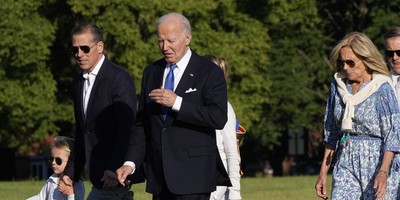
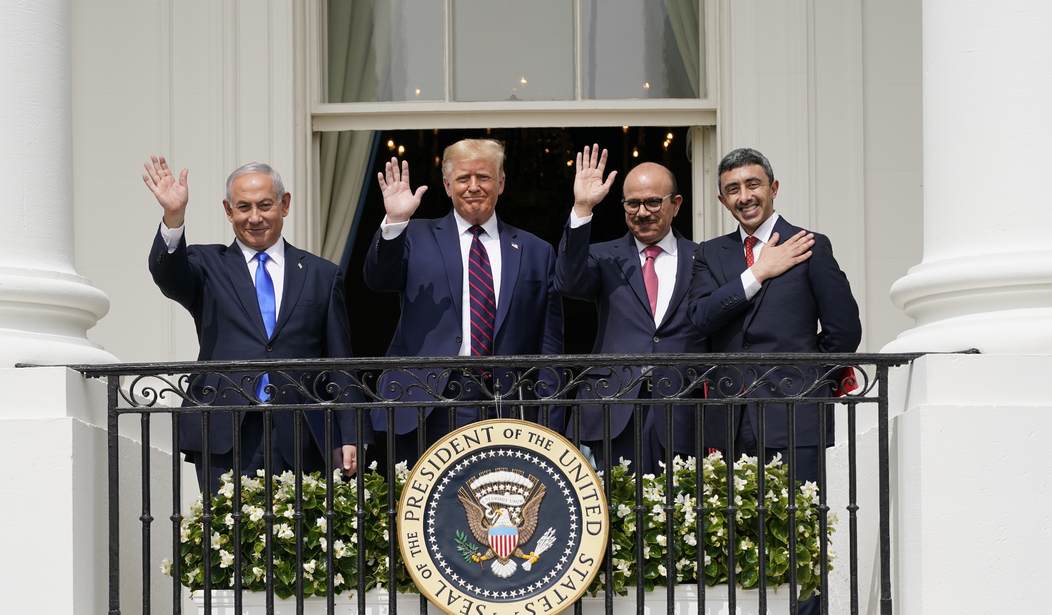

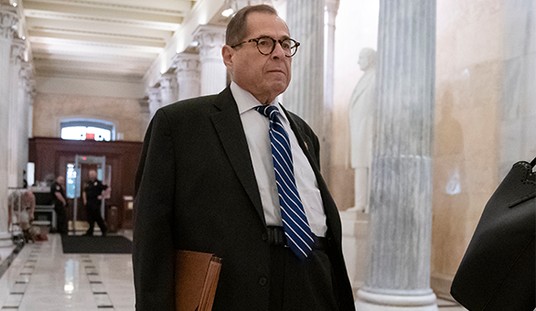


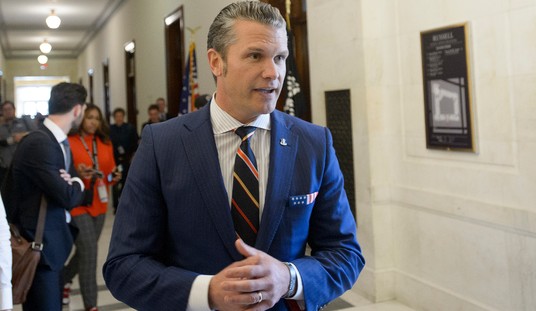
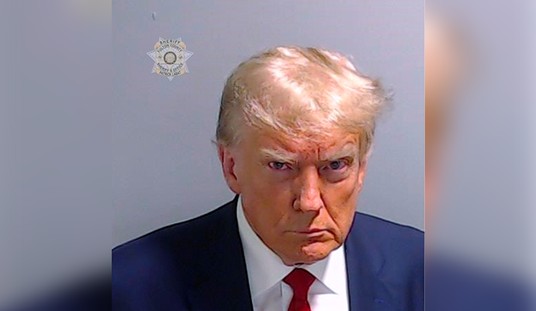
Join the conversation as a VIP Member